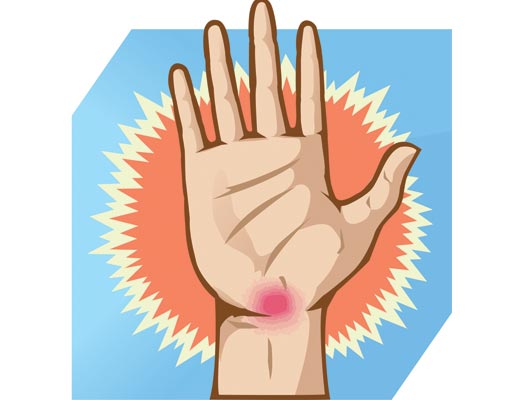Have no fear. The neurologist is here...
The pickleball experts have told us their thoughts on curing the service yips. In summation, they believe that a change in routine to simplify, focus, and prepare will help to overcome the problem. The underlying premise is that the problem is mental and actions can be taken to alter the mental block.
But what if the yips are not mental-based? What if there is a physical source for the problem that a change in routine can never overcome? Some studies say that may very well be the case for some.
In my research, I ran across 2 names repeatedly that were cited for their work with golfers with the yips - Charles H. Adler, a professor of neurology at the Mayo Clinic in Scottsdale and Debbie Crews, a sports psychology consultant. The studies show that many cases of the yips are indeed mental-based and can be treated with psychology. But some cases are neurological, with a condition called a focal dystonia.
I am not about to go into a detailed discussion of neurology, but I will define focal dystonia. It is:
a neurological disorder that involves involuntary spasms in the small muscles. It can result from overuse or repetitive stress, and it may affect musicians and golfers.
New Yorker Magazine had a long article in 2014 called The Yips that contained a lot of interesting information. Some highlights are shown below.
Athletes and sports fans have generally assumed that yipping and its variants are forms of performance anxiety, or choking. It’s true that nervous athletes often play poorly, and that yipping is most evident when the stakes are high, and that even serious sufferers are sometimes able to perform in practice or while playing alone...
Crews told me that she and Adler don’t use the word “choking” anymore. “It isn’t correct,” she said. “Choking and yips are not the same thing.” She said that anxiety can exacerbate the yips—just as it exacerbates the tremors in Parkinson’s disease—but it’s not the cause, since the yips are usually present whether the yipper is nervous or not, and even when the yipper can’t feel them...
Crews and Adler believe that most cases of the yips probably have a psychological basis of some kind, but that in some percentage the ultimate cause will turn out to be neurological. They are now planning a new Mayo study, in collaboration with a German sports psychologist named Christian Marquardt...
One of Adler’s hopes for the new study is that it will help to define the division between psychological and neurological causes. “The biggest problem is that there’s no diagnostic test,” he told me. “It’s all pattern recognition. So the hypothesis, with this new study, is that we’ll see a specific pattern for a specific golfer. We’re also going to be testing a couple of different interventions, to see if, with intervention, those patterns change.”...
The tour player Mark O’Meara has worked with Hank Haney for many years. On several occasions, O’Meara told Haney that he believed he was developing the yips. Haney was skeptical, because O’Meara had always been a good putter, but O’Meara insisted that he could feel what he described as a “hit” in his stroke, and he said it was getting worse. When Haney met Marquardt and Filmalter in Munich in 2003, he described O’Meara’s problem to them, and they gave him something to try. Back at home, Haney told O’Meara to grip his putter normally with his left hand, but to flatten his right hand and place just the tips of the fingers, lightly, on top of the handle, immediately below the left hand, so that all four fingers were pointing toward the target. (His thumb opposed them from the other side of the handle.) “Mark was reluctant to change, because of how funny it looked,” Haney told me, “but he tried it in the tour’s Father/Son Challenge, and after the first day he told me he hadn’t yipped a putt.” O’Meara still uses that grip...
Such techniques are known as sensory tricks, or gestes antagonistes. Steven Frucht said that, in the past, their effectiveness was often viewed as evidence that dystonias were psychogenic, but that nowadays it’s viewed as the opposite, and also as a potential window on causation. One theory about dystonia is that it involves the failure of a neurological mechanism called “surround inhibition,” which is how your brain enables you to, for example, wiggle your middle finger without also wiggling your index and ring fingers (or, at least, without wiggling them very much). Sensory tricks may restore the brain’s ability to suppress the firing of neurons that aren’t supposed to be involved in whatever the sufferer is trying to do—in essence, creating a neurological detour around the problem. But, if that’s what they do, no one knows how they do it—or why they often stop working...



No comments:
Post a Comment